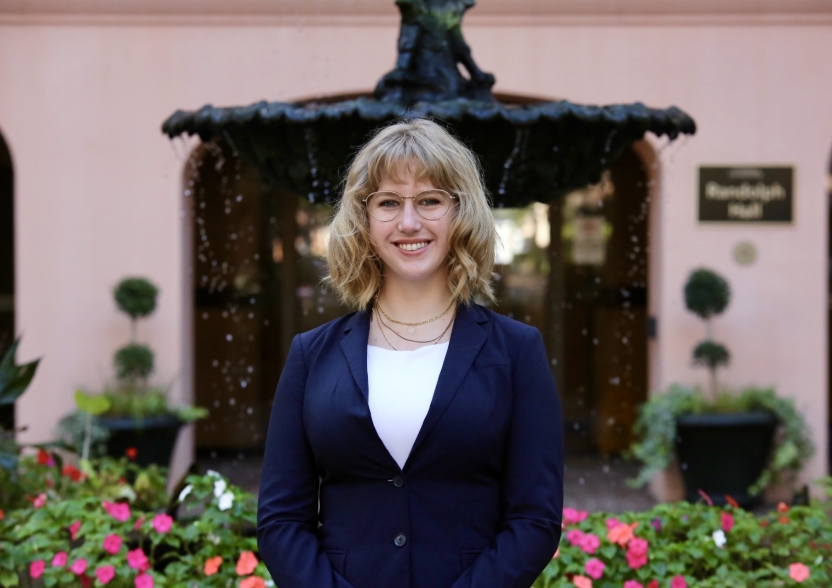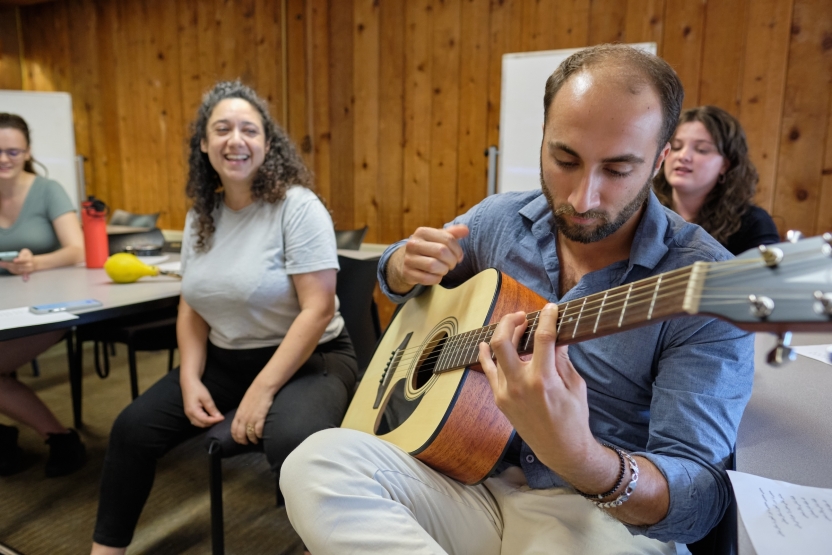Meet 8-week Arabic Immersion Student: Haley Hawkins

Haley chose Middlebury because she knew she had a long way to go in the language, and she wanted the ability to focus solely on Arabic without any distractions. Though it was hard at first when she was forced to jump headfirst into the language, it only took a couple weeks for her to settle in and get used to communicating exclusively in Arabic.
Haley Hawkins
Hometown: Charleston, SC
Program: 8-week immersion
Level: 2
Current: Johns Hopkins School of Advanced International Studies (SAIS)
Why did you choose to study at our Arabic School?
I chose Middlebury because I knew that I had a long way to go in the language, and I wanted the ability to focus solely on Arabic without any distractions. Arabic is a difficult language— especially at the beginning— and full immersion truly is the best way to go about it. I also had never been to the Northeast and always dreamed of spending a summer in Vermont.
What surprised you about your experience at the Arabic School?
I was surprised by how challenging it was, especially in the beginning. I’m not a stranger to difficult coursework, as I had just obtained my Bachelors degree a month before attending the program. However, when I suddenly lost my ability to communicate clearly with the people around me, I was forced to jump headfirst into the language, and it was hard at first. It only took a couple weeks for me to settle in and get used to communicating in Arabic.
Now, going back to English-based instruction of Arabic, I miss the constant practice and daily experiences in Arabic.
Please describe how your language skills improved due to your studies at Middlebury.
When I arrived at Middlebury, I was quickly humbled by how little I had scraped the surface of understanding the language. I noticed significant improvement in just the first couple weeks, and by the end of the program, I was confidently speaking on a variety of topics using past, present, and future tense. I was also able to read much faster and my listening comprehension skills had grown exponentially. All of that gave me a new confidence that reshaped how I felt about the language and how I used it.
This has emboldened me to seek out more opportunities to speak Arabic, as I am no longer afraid of making mistakes or being too elementary to carry a conversation.
Describe your typical day at the Arabic School.
I would grab breakfast before class at 9, and we had three hours of instruction with a couple of short breaks. We’d grab lunch from the dining hall before heading back for dialect class, culture workshop, or club hour. After dinner there were often events like Arabic Nights, theatre performances, art workshops, or dance recitals. In between events, there was plenty of homework and studying to be done to prepare for the next class. I frequently visited my professors office hours, which were held 5 nights a week. On weekends, friends and I would go into town to explore antique stores, to the nearby lake for a swim, or drive out to Albany.
What advice would you give someone wanting to attend the Arabic School?
Prepare for your ego to take a hit— only to gain confidence and skill every day that you learn.
As challenging as it is to throw yourself into a new environment in another language, there is no other experience so exciting and rewarding. No, it’s not easy— but nothing in life that’s worth it is ever easy.
What’s next for you?
After completing Middlebury, I drove straight from Vermont down to Washington, DC, where I started graduate school at Johns Hopkins School of Advanced International Studies (SAIS). I am focusing on the Middle East and North Africa, and, of course, continuing to take Arabic classes.
Connect with an Arabic School immersion ambassador.
Gather your materials to apply to our immersion, or graduate programs at the Arabic School.
Applications for the Summer 2026 session open on November 3, 2025.


